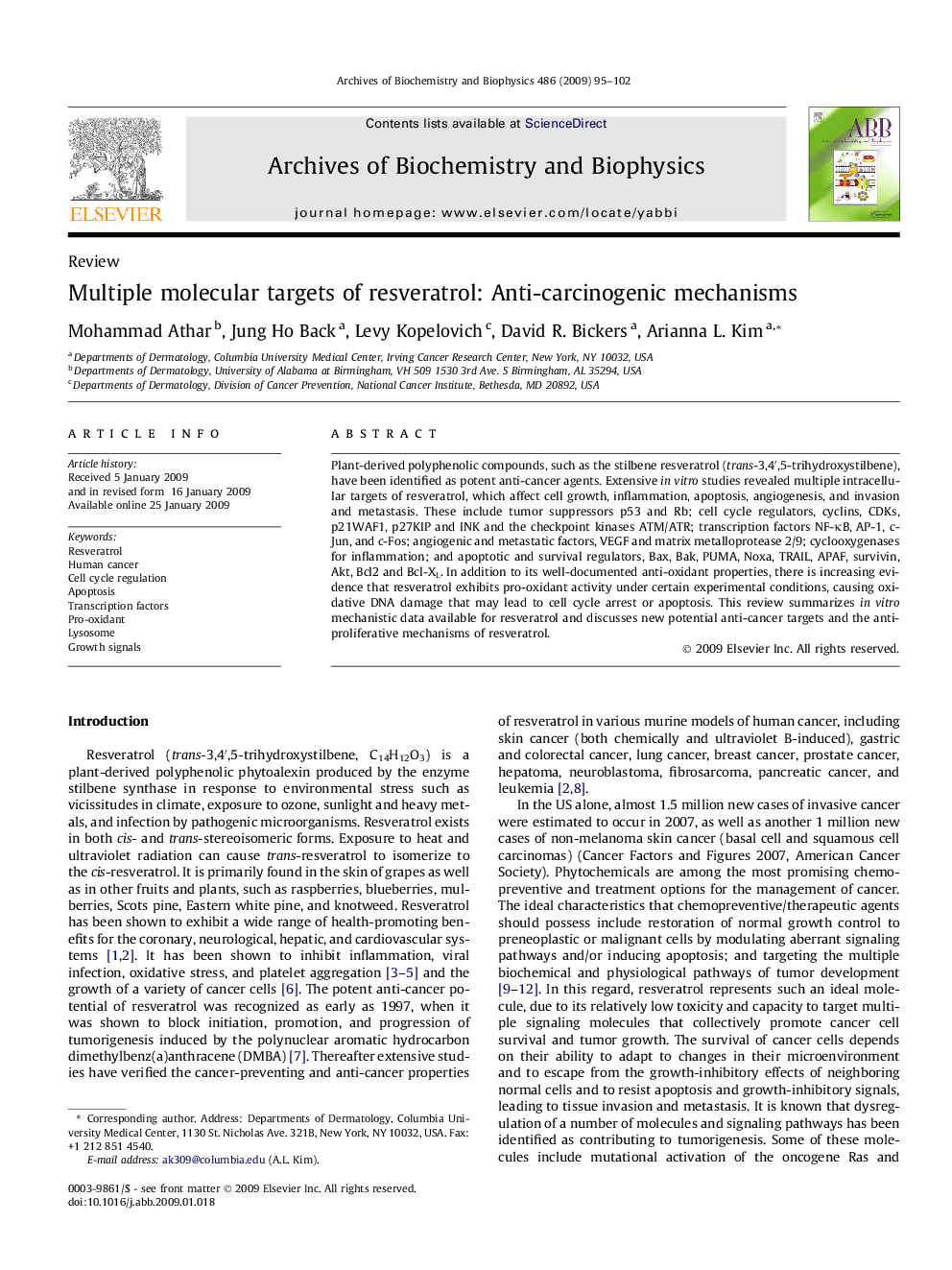| Article ID | Journal | Published Year | Pages | File Type |
|---|---|---|---|---|
| 1926349 | Archives of Biochemistry and Biophysics | 2009 | 8 Pages |
Plant-derived polyphenolic compounds, such as the stilbene resveratrol (trans-3,4′,5-trihydroxystilbene), have been identified as potent anti-cancer agents. Extensive in vitro studies revealed multiple intracellular targets of resveratrol, which affect cell growth, inflammation, apoptosis, angiogenesis, and invasion and metastasis. These include tumor suppressors p53 and Rb; cell cycle regulators, cyclins, CDKs, p21WAF1, p27KIP and INK and the checkpoint kinases ATM/ATR; transcription factors NF-κB, AP-1, c-Jun, and c-Fos; angiogenic and metastatic factors, VEGF and matrix metalloprotease 2/9; cyclooxygenases for inflammation; and apoptotic and survival regulators, Bax, Bak, PUMA, Noxa, TRAIL, APAF, survivin, Akt, Bcl2 and Bcl-XL. In addition to its well-documented anti-oxidant properties, there is increasing evidence that resveratrol exhibits pro-oxidant activity under certain experimental conditions, causing oxidative DNA damage that may lead to cell cycle arrest or apoptosis. This review summarizes in vitro mechanistic data available for resveratrol and discusses new potential anti-cancer targets and the anti-proliferative mechanisms of resveratrol.
